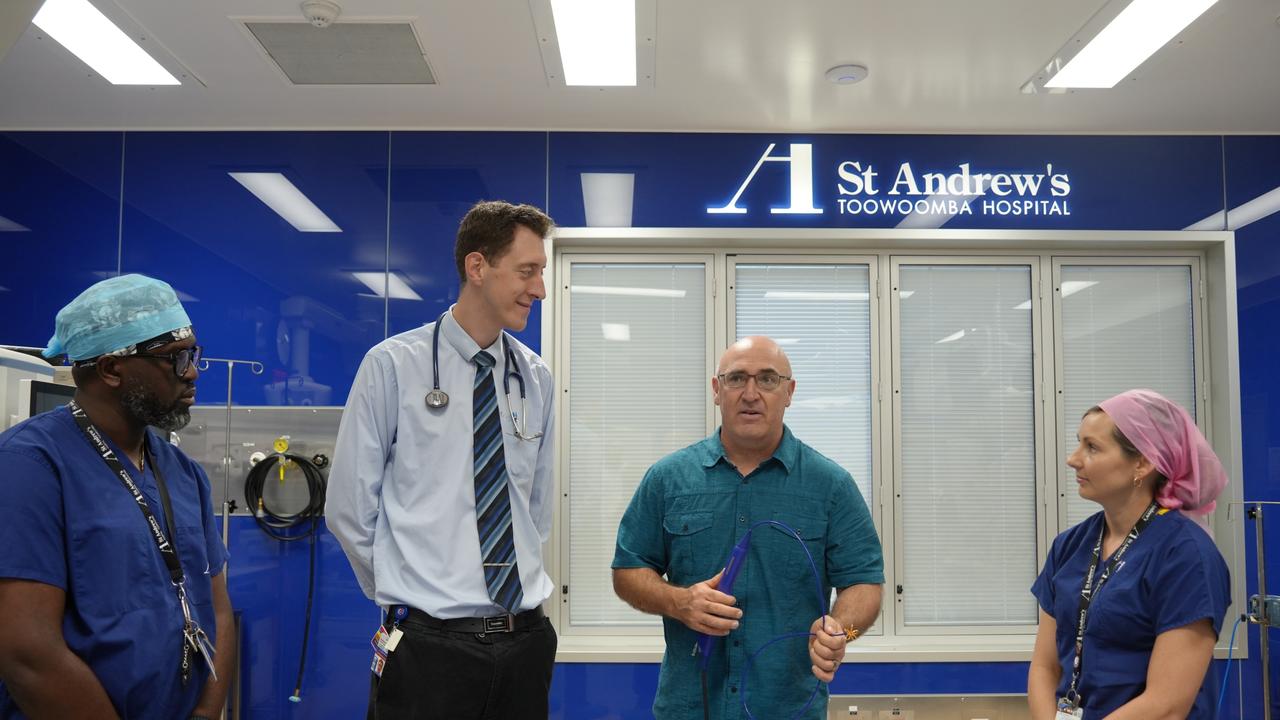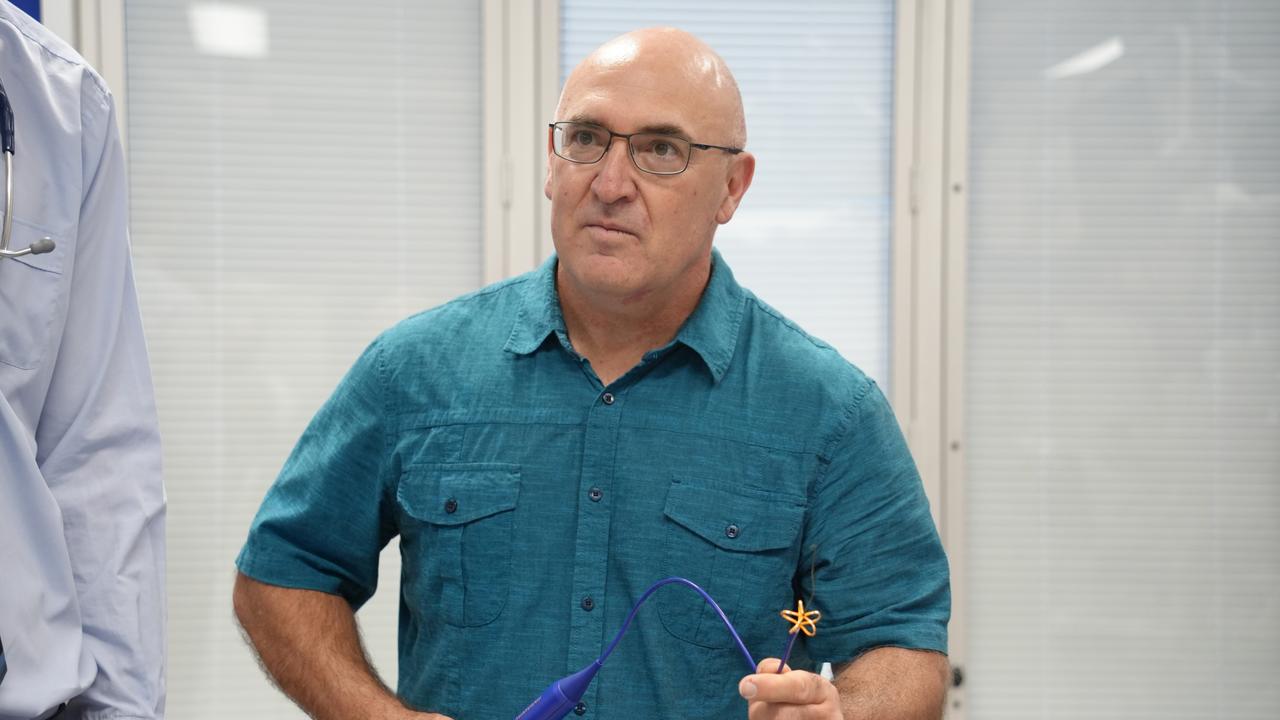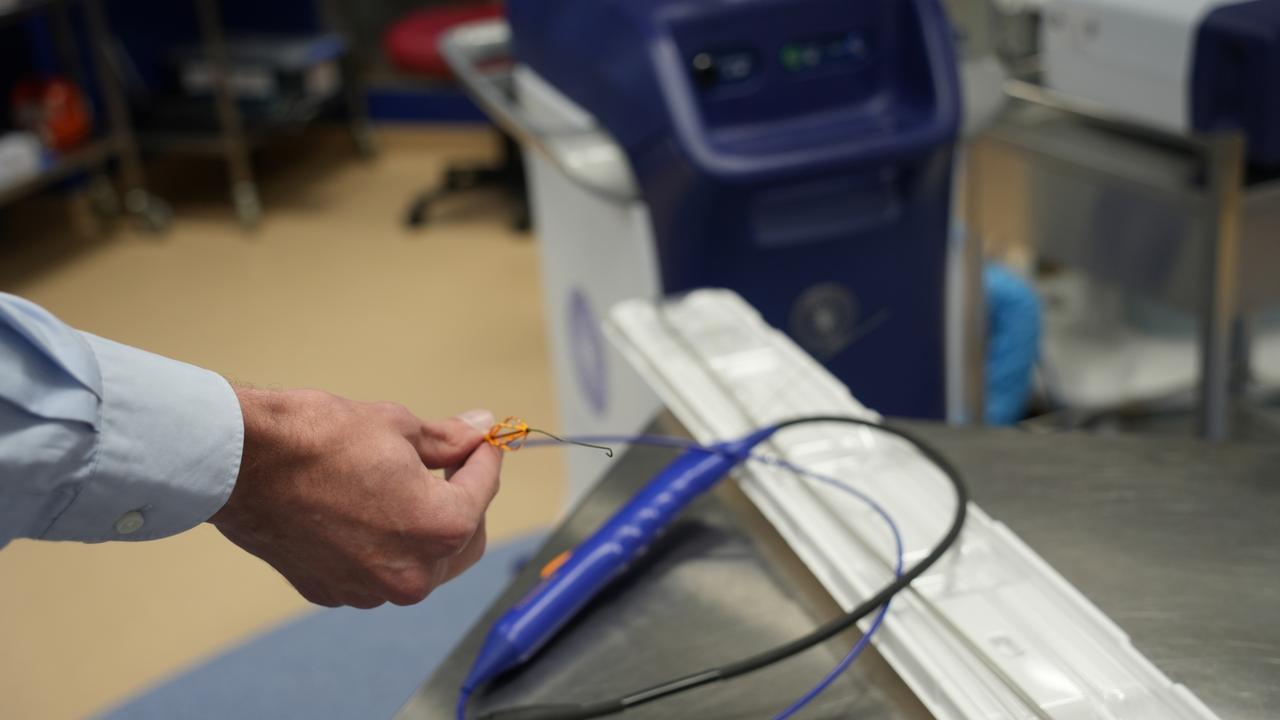St Andrew’s hospital joins just a handful of places around Australia to introduce Farapulse, a new cardiac treatment technology
A revolutionary device used in the treatment of a cardiac condition is being used in a regional Queensland hospital for the first time. Here’s how it works.

Community News
Don't miss out on the headlines from Community News. Followed categories will be added to My News.
A heart procedure that would usually take four hours can now be finished in 90 minutes and allow the patient to walk out of hospital the next day, thanks a revolutionary new technology in use at a Toowoomba hospital.
Farapulse was developed in the US and is slowly being launched worldwide to improve precision and minimise risks in cardiac surgery.
“When my wife came to pick me up the following morning she was in disbelief that I had heart surgery and I just walked home like it was nothing,” patient Kevin Voeller said.
After suffering three episodes of fast racing heartbeat throughout the past year, a condition known as atrial fibrillation, Mr Voeller sought medical care at St Andrews with cardiologist Dr Caleb Mengel.

Atrial fibrillation is a condition that affects one in 17 people over the age of 65 and can cause symptoms of breathlessness, dizziness, light-headedness, and chest discomfort that can be debilitating.
Dr Mengel, who specialises in treating rhythm disorders, said Farapulse created a more efficient and safe procedure for patients like Mr Voeller.
“Previously there were a lot of risks we had to worry about, like damaging nearby structures like the oesophagus or nerves that are close to the heart,” he said.
“By electrically simulating the parts of the heart as opposed to heating or freezing them, it doesn’t damage any of those and it doesn’t hurt for the patient either.”
Dr Mengel said introducing this technology at St Andrew’s was a big step for regional medical access.
“Previously, this level of cardiac care was only available in capital cities,” he said.
“As far as we know, this is the first use of this technology regionally in Australia.”
The introduction of what may appear to be a tiny device will have incredible impacts for other patients suffering with atrial fibrillation in the Darling Downs.

“I know from growing up on the Downs that flowers are important and this 31mm device, in the shape of a flower, is a thing of great medical beauty,” Dr Mengel said.
Dr Mengel said he and his team at St Andrews had invested in outstanding cardiac facilities, along with the development of the hospital’s Rapid Access Heart Centre.
“I am invested in the Downs and it was always my dream to bring the best treatment to patients in my community,” Dr Mengel said.






